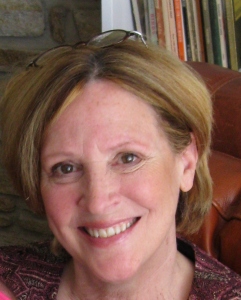The phone rang while I was making dinner. My kids were underfoot. It was 1986, we didn’t have Caller-ID yet, and I always suspected telemarketers at that time of day. I tried to answer with an attitude, making it clear we didn’t need new windows or a timeshare in Jamaica.
The voice on the other end was low and commanding, and her name was Myra. She was a senior editor at Cosmopolitan, following up on a query letter I had sent a month before. She was quick and to the point.
“We’d like to hire you to write the article you’ve proposed. We can offer $3,000 with a kill fee.”
I was not yet calling myself a writer back then for fear I would be outright lying. I was piling up meager checks here and there, mostly from parenting magazines and newspaper op-eds. When she said $3,000, I was conscious of not hyper-ventilating into the receiver.
I had queried Cosmo about an article idea I knew nothing about — not unusual for me back then (or now, come to think of it). The topic was the relatively new phenomenon of single career women deciding to have a baby on their own, without a husband or even a boyfriend in their lives. Tame by today’s standards, there was a time when this was groundbreaking.
Myra wound up our conversation with this: “The first draft will be due in six weeks. Of course Ms. Brown will have final say. I’ll be in touch after she reads it.”
I got off the phone, positively giddy. Then I realized Ms. Brown was Helen Gurley Brown. And my knees shook a little.
The next day, I began my research. Since email was not yet the communication of choice, I did everything by phone while my kids sat in front of the television, eyes glazed over by Gilligan Island reruns. It was not my best mothering moment, but — hey — I was going to have a byline in Cosmo.
I felt a connection to the women I interviewed even though I’d gone the conventional route toward motherhood. They were smart and savvy. Their stories were poignant, about their dreams to have a baby, about running out of time. Myra had made it clear in our first conversation that the magazine did not approve of this new way to form a family and my piece should reflect that slant.
I thought I knew better. On the day I put my draft in the mail, I believed I was going to make journalistic history. A few days later, the phone rang. It was Myra.
“We received your draft and Ms. Brown has seen it. I’m going to read from her memo.”
Here is what Helen Gurley Brown thought of my draft: “This writing is smug, small, and sanctimonious.”
I’ve always loved the idea that she brought forth alliteration to cut me off at my writing knees.
Here’s the good news. There was a kill fee waiting for me that exceeded my wildest expectations. I thought HGB was wrong about my writing, but I still had some wounds to lick. So I licked them. And I developed a clever answer for friends who kept asking when my article was going to appear in Cosmo.
And the bad news? There wasn’t any. My keyboard was still waiting for me in the morning, with all its possibilities. So I sat down. And I got back to work.



